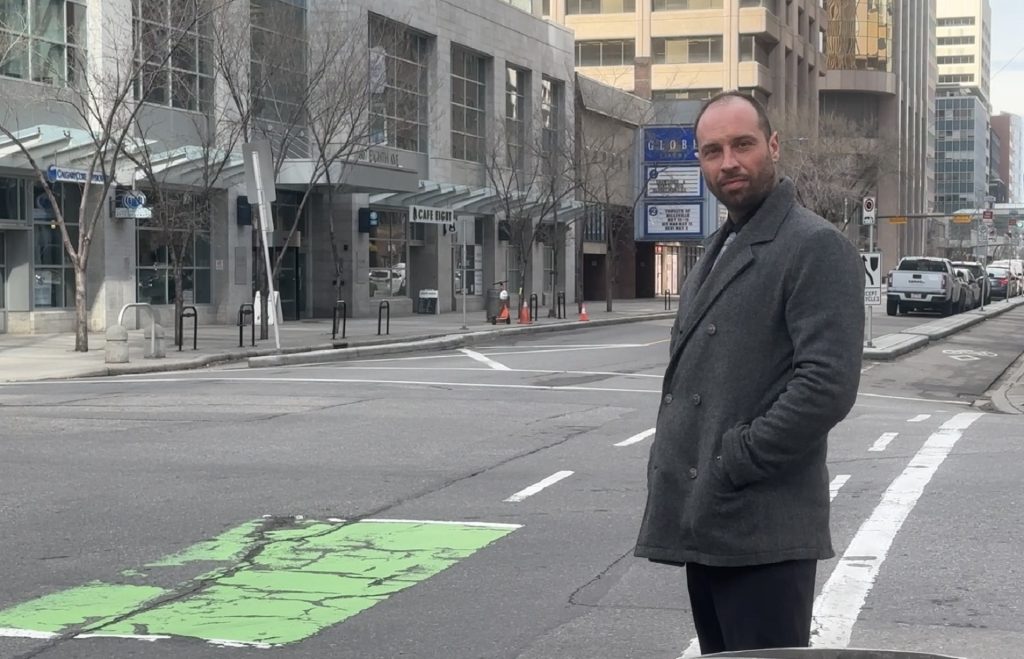‘We’re not perfect’: CPS chief responds to concerns about policing
Posted Jun 10, 2020 5:22 pm.
Last Updated Jun 10, 2020 5:25 pm.
CALGARY (660 NEWS) — With protests continuing around the world highlighting concerns about police brutality and systemic racism, the Calgary Police Service held a wide-ranging press conference on Wednesday afternoon to address some of these issues.
“We fully acknowledge that we’re not perfect,” said Chief Constable Mark Neufeld. “We are human doing what can, at times, be a very difficult job. At times, we make mistakes. At times, we fall short of expectations.”
Neufeld said the combination of COVID-19 and the protest movements have created an unprecedented situation for policing, but the conversations that have been sparked are a “good thing.”
Neufeld says this has been a very challenging time with numerous issues coming forward at once. He supports the right for people to protest, wants people to know that they are listening to concerns about racism and brutality. pic.twitter.com/ZLlGztvH2K
— Tom Ross (@Tommy_Slick) June 10, 2020
He said that they need to have the trust and support of the community, and they are actively listening to what people have to say.
“I think when we listen downtown when we’re hearing the community talk about situations that they’ve experienced, it does make you stop and think. And there’s lots of people in the community that have different experiences than I do.”
Neufeld said that while two weeks ago he may not have agreed that systemic racism could be present in the service, he is not so sure of that anymore.
That said, he does have faith in his members and promised to maintain a focus on this.
“Let me be clear. CPS does not tolerate racism. Let me be clear, CPS does not tolerate police brutality. We do not tolerate the intentional use of force that is excessive, in violation of the law, our policies or our values.”
RELATED: Calgary police chief, mayor react to Black Lives Matter protests
Other executive members of the CPS also rose to the podium to talk about various practices, including how they engage with members of the community and the use of body cameras.
“We know that as a society, the public’s expectations change,” said Deputy Chief Raj Gill, Bureau of People.
Gill said that they are continually updating training on the use of force, implicit bias, and de-escalation tactics.
In 2017, independent use of force review was carried out and resulted in 65 recommendations which were all accepted in principle.
Gill said 85 per cent of these recommendations are in the process of being implemented today.
“Calgary is a richly diverse community and when new members join the Calgary Police Service, they receive almost 30 hours of mandatory training and testing on being sensitive to community needs, implicit bias, de-escalation situations and communication skills,” he said.
Refresher courses are offered throughout the career of officers, and this year the mandatory annual re-training is being expanded with a focus on the use of force and physical tactics.
Gill added there are specific courses on Indigenous people, including classes on culture and thoughts on how justice systems should be adjusted.
With body cameras, the devices were given to all frontline officers as of May 2019 and should be turned on during every interaction with a member of the public.
Deputy Chief Katie McLellan said this has been a positive process, and they have collected thousands of hours of videos so far.
“The presence of body-worn cameras can, and have worked, to deescalate the situation at hand,” she said.
They also continue to evaluate the program so that it can also be more transparent and meet the needs of the public, while also balancing various privacy concerns.
RELATED: ‘Extraordinary pride’: Mayor Nenshi supportive of mass demonstrations in Calgary
Neufeld also responded to questions on carding, or street checks, which have been lambasted as racist and discriminatory in other jurisdictions.
That said, there can be unintended consequences. Supports reviews of the program too, and says evidence in support of it is strong as long as it is implemented correctly. pic.twitter.com/UUxaSche4e
— Tom Ross (@Tommy_Slick) June 10, 2020
He defended the practice in Calgary and said that in most cases it is used in direct response to a call for service, but there can be some failings and they will continually look at it to make sure it isn’t prone to issues of it disproportionately affecting certain ethnicities.
Neufeld responded about the growing movement to defund the police, which he said has some valid points and hopes more can be done on this subject.
“Let’s be honest here, we’ve been talking at the Alberta Association of Chiefs of Police level and here in the Calgary Police Service for a while about trying to find ways to divert people that are non-violent, that may be struggling with issues around addiction or mental health, who should not probably be in the criminal justice system.”
He said the nature of the situation is that most of the calls get sent to them, even though there are numerous community organizations that could help in some situations.
“Unfortunately, just by virtue of the fact that we work 24/7/365 we’ve become the de-facto social services agency,” said Neufeld.
In response to several questions about incidents getting media attention recently, Neufeld said that he cannot comment much about matters that are currently under investigation but that if “repugnant” actions from police officers were made under his watch that the response would be “swift and severe.”
Overall, Neufeld wanted to make it clear that this is an ongoing process and wants people to come forward with their concerns to help make the service more effective and help more people.
“We’re not coming here with all the answers and we’re not coming here saying we’ve got it all figured out. What we’re saying is we want to engage with the community that’s experiencing this pain.”










